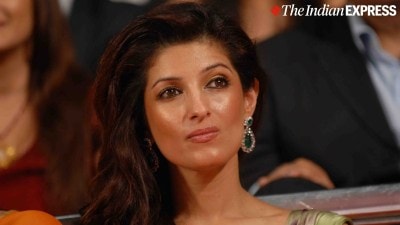Stick-check
If you are a hockey player, or even an aficionado, hang your head in shame. Not only is the sport dying in this country of multiple Olympic gold medallists, with the standard of the game having plumbed obscene levels, and not only is the administration unperturbed, the players themselves are probably the most unruly of any sporting discipline today. Just the other day, in the third final of the Premier Hockey League in Chandigarh, the umpire was chased and heckled. A ban ensued, but haven8217;t we seen such 8216;bans8217; before? Sandeep Narayan takes stock of the incident.

Officials of the Delhi Metro once stopped a hockey player based in the Capital from boarding a train with his hockey stick. The allegation was that he was going to use it for a brawl. Officials were unaware that he was a professional player who was commuting to the Shivaji Stadium for a tournament. But recent incidents of onfield hooliganism and misbehaviour by players 8212; not only towards each other but also with officials and umpires 8212; probably makes the officials8217; assumption a correct one.
Wednesday8217;s ban on three players by the Indian Hockey Federation IHF brings to light the seriousness of the disease and the far reaches to which it has spread. The debate of whether the penalty was too harsh, or too light, or necessary at all, is growing.
8220;It is a welcome move. Indiscipline should not be tolerated. I realise that some of these players were important to the national team, but even if their absence does create a vacuum for a little while, it will eventually get filled,8221; said Harinder Singh, assistant coach for the senior national team.
8220;No matter what a player8217;s ability, he does not have the right to become aggressive with an official. There are rules, in case one wants to protest a decision. Some decisions go for you, others don8217;t, that8217;s the sport. We should learn to deal with it,8221; he added.
There are games like cricket or tennis where disciplining is strict. That is true even at the domestic level. Even in a body-contact sport like soccer, the referee is deemed the ultimate. Incidents do occur in soccer, too, but with the country8217;s standing in the sport being low, not much is made out of it.
Hockey is the national sport, and India still have a standing in the world. That makes it difficult to hide.
8220;These are two different types of sports. Hockey players are more pumped up, hence are more likely to lose their cool,8221; said former Olympian Ashok Kumar. 8220;But a player who can keep his head cool in those times is a good player. What the IHF has done now, it should have been done a long time back. This is not the first time such an incident has happened. Why have all those other incidents been ignored by the parent body?8221;
A similar incident had taken place 10 years back in the Aga Khan meet in Mumbai, which was also televised. No major action was taken then.
The expose
Then came the expose. Ashok Kumar pointed out that whatever the officials did would not have happened, had it not been for outside pressure. It was because of the presence during the tournament of one Bob Davidson, an FIH official and a representative of the IOC too, that the IHF was forced to behave tough.
Davidson is a former umpire from Germany, deputed by the IOC to guide and advise the IHF and help in the rebuilding of Indian hockey. He is a former chairman of the FIH umpiring committee.
Former National coach Rajinder Singh Jr, however, felt that the decision was a bit too harsh on the players. 8220;Indiscipline should not be welcomed, this I agree with, but there are times when the umpire can make mistakes, and in the heat of the moment the players tend to get a bit aggressive. I think the IHF should constitute a committee that will seriously look into how umpires perform,8221; he said.
Similar views were expressed by former India captain Pargat Singh, who thought that the punishment was too harsh because their careers will be finished.
Many would say that out of the three it was Tejbir who would suffer the most as he had been playing quite well for some time and was likely to make the team in the upcoming Azlan Shah tournament later in May.
- 01
- 02
- 03
- 04
- 05































